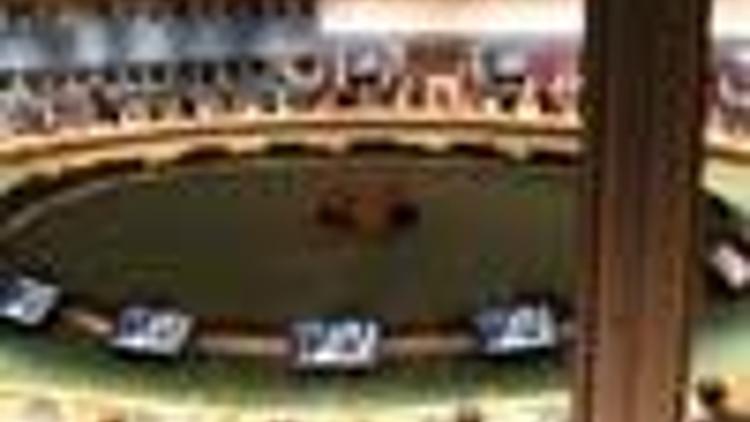Mediterranean countries vow to free Middle East region of WMDs
Güncelleme Tarihi:

Forty-three nations, including Israel and Arab states, have agreed to work for a Middle East free of weapons of mass destruction in launching an unprecedented Union for the Mediterranean aimed at securing peace across the restive region.
Deep divisions still slice through the region and its population of 800 million people, and surfaced during Sunday's summit, highlighting how hard it will be to parlay the meetings goodwill and words into real progress.
However Syrian President Bashar al-Assad stole the show at the
Once banished for his "destabilizing" role in the Middle East, Assad, in a series of meetings over the weekend, resumed diplomatic ties with
In his big return to the international stage, he helped ensure that French President Nicolas Sarkozy's Union for the Mediterranean summit was not undermined, as many had feared, by feuding among the
The ceremonial inaugural summit at the lofty iron-and-glass Grand Palais in
QUESTION MARKS OVER WMDS
"We dreamed about a Union for the
In a final declaration, the nations represented at the summit - including
The statement said that includes nuclear, chemical and biological weapons and their delivery systems, and said the countries will "consider practical steps to prevent the proliferation" of such weapons.
It was unclear, however, how the signatories - who included Olmert and Assad - would enforce the pledge.
The question of nuclear weapons in the region is particularly sensitive lately, given rising tensions between
Israeli jets destroyed what
TERRORISM COMDEMNED
The summit declaration also condemned "terrorism in all its forms" and announced six major projects, from a common university and easier travel visas for students to depolluting the
It also spoke of democratic principles, human rights and fundamental freedoms - values Western critics have accused such union members as
Sarkozy said the four-hour talks were successful and lively. "There were disagreements ... but were all there," Sarkozy said.
Assad left the enormous table before Olmert gave his speech to the more than 40 leaders seated around it, Israeli government officials said on condition of anonymity because of the sensitivity of the matter. Assad said later that he didn't shake Olmert’s hand because the two enemy nations are still only in indirect talks.
Sarkozy went to special efforts to bring
He said the union has better chances of success than a previous cooperation process launched in
The new union is to include at least 43 nations, nearly all of which sent a president or prime minister to the summit. Libyan leader Moammar Gadhafi objected to the whole idea and refused to come.
The final declaration said the union is to be operational by the end of this year and will be jointly run by all its members. It will have a dual presidency, held jointly for rotating terms by one country within the European Union and one country on the Mediterranean shore.

